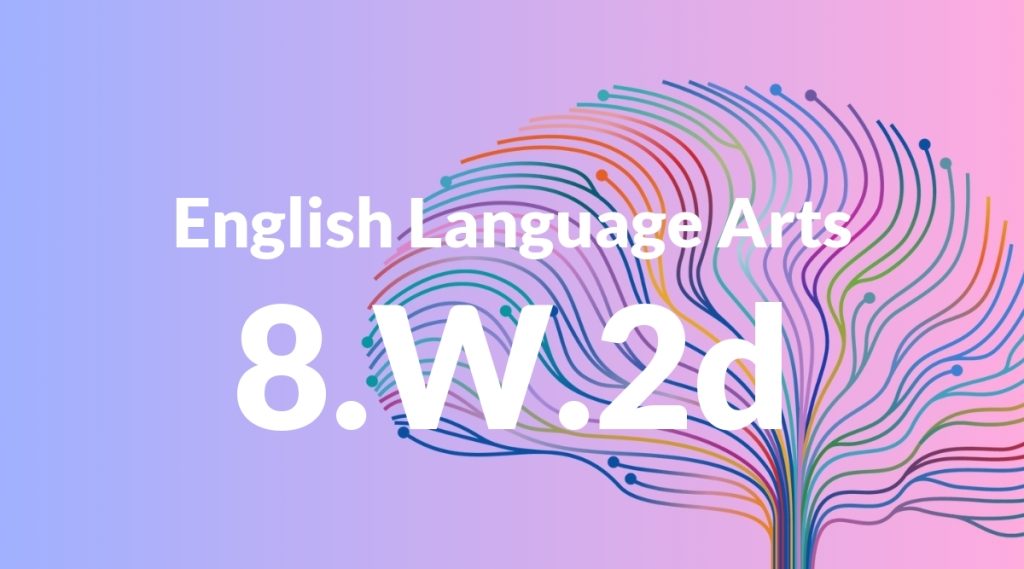Standard: 8.W.2d – Use precise language and domain-specific vocabulary to inform about or explain the topic.
Grade level: Grade 8
Subject: English Language Arts
Domain: Writing
Teacher Overview
This standard emphasizes the importance of using precise language and domain-specific vocabulary in writing. It is crucial as it helps students communicate more effectively and professionally in various contexts. Mastery of this standard prepares students for high school and beyond, where precise and accurate communication is essential. Students should have a solid grasp of grammar, sentence structure, and basic paragraph writing. Familiarity with writing simple informative texts is also necessary.
Upon mastering this standard, students will be able to write more complex and detailed informative and explanatory texts. They will develop skills in organizing information logically and using advanced vocabulary to convey their ideas clearly.
Common Misconception 1
A common misconception is that using more complex words always makes writing better. This is incorrect because clarity and appropriateness of vocabulary are more important than complexity. Overly complex language can confuse readers and obscure the main message.
Intervention 1
To address this misconception, provide students with examples of effective writing that uses simple, precise language. Encourage them to focus on clarity and appropriateness of vocabulary rather than complexity.
Common Misconception 2
Another misconception is that domain-specific vocabulary is only necessary for certain subjects. This is incorrect because every subject has its own set of terms that enhance understanding and communication within that field.
Intervention 2
To remediate this, show students examples from various subjects where domain-specific vocabulary enhances understanding. Encourage cross-curricular projects to practice using domain-specific vocabulary in different contexts.
Prerequisite Knowledge
Students should be familiar with basic grammar, sentence structure, and have a foundational understanding of how to construct a paragraph. They should also have experience with writing simple informative texts.
Subsequent Knowledge
After mastering this standard, students will be able to write more complex and detailed informative and explanatory texts. They will develop skills in organizing information logically and using advanced vocabulary to convey their ideas clearly.
Instructional Activities
- Conduct a vocabulary scavenger hunt where students find and define domain-specific terms in a text.
- Have students write a short informative essay on a topic of their choice, emphasizing the use of precise language and domain-specific vocabulary.
- Create a peer review activity where students exchange essays and highlight instances of precise language and domain-specific vocabulary.
- Develop a project where students create a glossary of terms for a specific subject or topic.
- Organize a classroom debate where students must use precise language and domain-specific vocabulary to argue their points.




